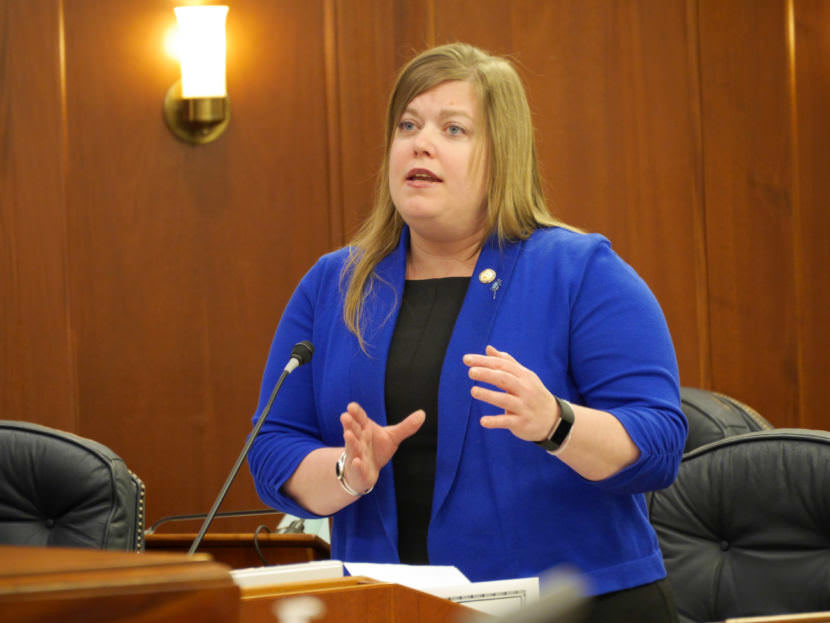
As of late afternoon Thursday, the Alaska Senate and House hadn’t made any public progress on oil and gas tax legislation. They met Wednesday, but they still can’t agree on how to replace the state system allowing companies to receive tax credits. Lawmakers only have two more days in the special session.
When oil companies that aren’t major producers spend money to develop new fields, they get tax credits from the state they can trade for cash. It’s an incentive for companies that are smaller or newer to the state to do business here.
Both House and Senate members want to get rid of these cash credits. But House members want to delay replacing these credits. Senators want to allow companies to use the losses to reduce the taxes they’ll have to pay in the future.
Sitka Republican Sen. Bert Stedman said companies need to know what will happen when they spend in Alaska. He said that won’t happen under the House’s revisions to the oil and gas tax bill, known as Version X.
“If you want to put the industry in the freezer in Alaska – literally, shut it down – for expansion into these new, fairly colossal fields that have been targeted, this is how to do it,” Stedman said. “We need to take this Version X and quite frankly put it into the shredder.”
Anchorage Democratic Rep. Geran Tarr said the state can’t afford to give up a similar amount in future taxes than it currently hands out in cash credits. She said the money is needed to fill in the gap between what the state spends and what it raises in taxes, fees and oil royalties. Without any changes, she said Permanent Fund dividends could be cut further.
“Every dollar not earned through a reasonable oil tax puts more pressure on the use of the PFD for state government,” she said.
Senators said the Legislature should make progress with what both sides can agree on: getting rid of cash credits.
Anchorage Republican Sen. Cathy Giessel said the state would be in worse shape financially if uncertainty leads to less oil production. That would mean fewer royalties flowing to the state.
“We are focused on making sure that we continue production on the North Slope, because this royalty value is significant,” she said.
Rep. Andy Josephson, an Anchorage Democrat, raised the possibility of putting setting an end date on when companies can use – or carry forward — their losses from spending on oil-field development or leases to lower future taxes. He said that would put pressure on lawmakers to make more changes to the tax system.
“We don’t know how we can have that serious discussion without further discussion to carry-forward lease expenses,” he said.
State Tax Division Director Ken Alper agreed with senators who expressed concern about the uncertainty potentially caused by the House bill.
“It does create an uncertainty to not know what sort of value you’re going to get for your spending,” he said. “And so I understand why there is some consternation from the Senate side and from some in industry as to why this House compromise bill might not be a completely viable solution.”
But Alper said there’s still room for compromise between the two chambers.
“I encourage the two sides to continue to talk to find some sort of middle ground on the valuation of losses on what some will call cost recovery, so that we can all complete this project for 2017 and move on to what’s next in passing a fiscal plan,” Alper said.
The special session must end by Saturday.
Alaska’s Energy Desk’s Rashah McChesney contributed to this report.
